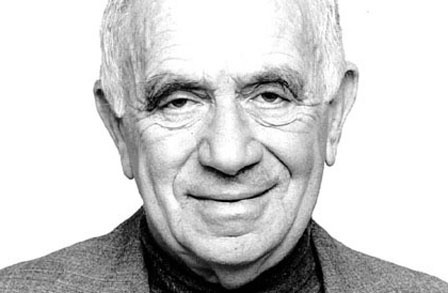I like the accessible poetry of Yehuda Amichai. Today I read his poem ‘Tourist’ for a future anthology. Amichai (1924-2000) is generally considered the most important contemporary Israeli poet.
She showed me her swaying hair
in the four winds of her coming.
I showed her some of my folding ways of life
and the trick, and the lock.
She asked after my street and my house
and I laughed loudly.
She showed me this long night
and the interior of her thirty years.
I showed her the place where I once laid tefillin.I brought her chapters and verses
and sand from Eilat
and the handling of the Torah
and the manna of my death
and all the miracles that have not yet healed in me.She showed me the stages of joy
and my childhood’s double.
I revealed to her that King David is not buried in his tomb
and that I don’t live in my life.While I was reflecting and she was eating,
the city map lay open on the table-
her hand on Qatamon,
my hand on hers-
the cup covered the Old City,
ash dropped on the King David Hotel,
And an ancient weeping
allowed us to lie together.
I see an older man having a rendezvous with a thirty-year-old woman. She comes from four winds, from all directions, which means no direction: She is suddenly there, an epiphany. Their encounter is very tender. In just a few words you can see the characters opening up to each other. He tells her about his awkward (folded) life. She asks where does he live. He laughs. They spend a long night together and she entrusts him ‘the interior of her thirty hears’. Tefellin is ‘either of two small leather cases containing texts from the Hebrew Scriptures (known collectively as tefillin); traditionally worn (on the forehead and the left arm) by Jewish men during morning prayer’. The man is not religious anymore. He seems in the process of becoming a secular Jew.
He shares traditions with her: the word, the land, the customs, the manna of his death – what’s that? Manna is food given to the Isrealites during the Exodus. Is the author referring to an exodus out of his religion?
She shows him joy and his ‘childhood’s double’. Then he reveals to her that he doesn’t live in his life. He feels estranged from the religious narrative and the Chosen People: King David is not buried in his tomb on Mount Zion (you can check this for yourself: the Internet lists the following phone number for the tomb: +972 2-581-1911). An empty grave reminds of us Christianity but I don’t want to go there. I don’t want to interrupt Amichai and his lovely girl.
We see a city map – hence the title ‘Tourist’. Their hands touch, a cup is placed on the Old City and King David is desegrated (or praised?) a second time by the dropping of ash in a straightforward metaphor that might appear staged. The closing lines contain some of the mystery that I seem to be looking for in a poem. The ‘ancient weeping’ of course refers to the moving history of Jerusalem. That history is what connects him with the tourist. Is the tourist also a Jew? Or not, coming from four winds? Is what he shares with her not the pain of the jewish people, but the suffering of humanity as a whole? And then: to ‘lie together’ is delicate in English: Are they fucking or deceiving, or both? It makes us curious about the Hebrew original.

One thought on “Reading: Tourist by Yehuda Amichai”
Comments are closed.